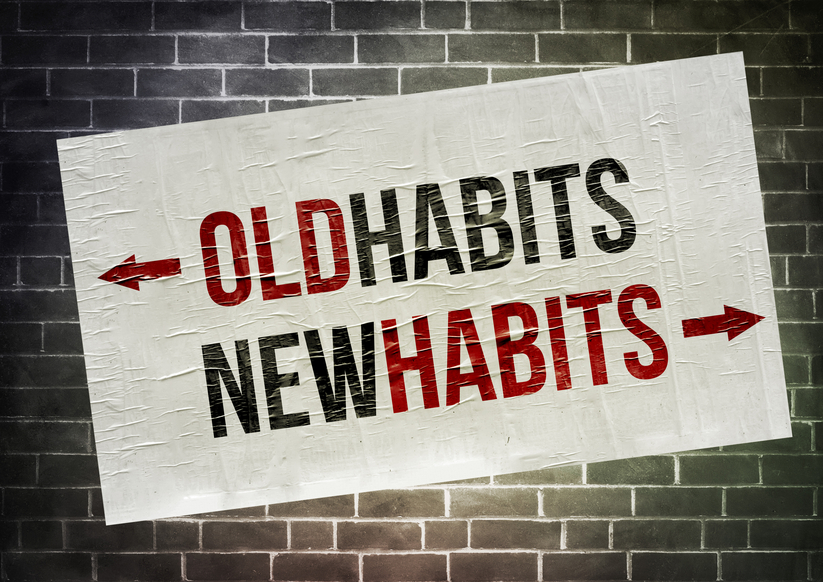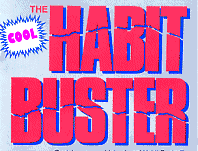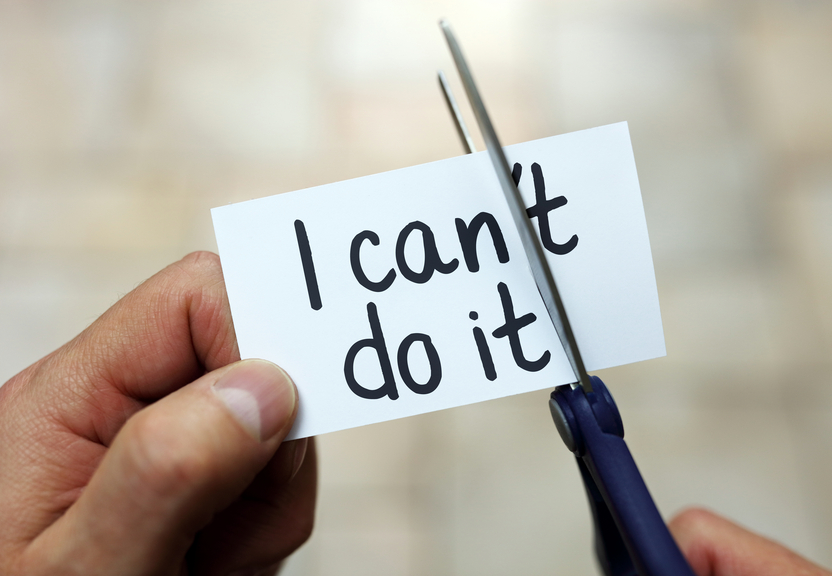 |
BlubberBusters Tips
from Lucy (Click here for past week's tips) |
||||||||||||||||||||
HOW TO BREAK A BAD HABITOut With The Bad - In With The Good
So, you've got a bad habit and you think you want to break it? GREAT! Take a look at the My Readiness To Change My Bad Habit Behavior Chart below to help you determine how ready you are to change. Check "yes" or "no" for each question:
I AM COMMITTED TO CHANGE. If you sincerely want to stop or change your bad habit you must commit to working on changing your behavior. It takes time and it takes work. If you checked "Yes" and you feel that you are ready to commit, that's a good first step! I AM AWARE OF MY BAD HABIT BEHAVIOR. Bad habits evolve over time and are just easy ways to deal with some emotion like being bored or stressed or lonely. The bad habit behavior makes it easier to deal with a certain emotion or task. For example: You were stressed over a school assignment so you ate a bowl of ice cream or a bunch of cookies and it made you feel better for a short period of time. But then you felt bad because you ate the ice cream or cookies. Don't worry, you can learn to stop the behavior and break the bad habit! Bad habits provide some benefit in your life so rather than try to stop the habit you might want to REPLACE THE BAD HABIT WITH A NEW HEALTHIER HABIT that provides you with a similar benefit. The idea is to come up with a different way to deal with the emotion like stress, boredom, or loneliness and try the new healthier behavior instead. Good News! You can TEACH YOURSELF better, healthier habits and behaviors to deal with these emotions and situations. Being aware of your bad habit behavior is necessary so that you can replace it with a healthy behavior. I AM AWARE WHAT TRIGGERS THIS HABIT. If I am aware of what triggers my bad habit, I can learn to replace my bad habit with a healthier habit.Being more aware of your bad habit behavior will help you come up with ideas for stopping it. When you feel the urge to act on your behavior, make a note of it. What is going on when the bad habit occurs? Am I stressed, bored, just home from school, etc. Developing awareness of when the bad habit occurs can help you come up with a plan to stop it. Check the following list to see how aware you are of your bad habit behavior.
1. WHEN does my bad habit occur? (for example when I'm lonely, bored, depressed, with friends after school, etc.) 2. HOW OFTEN do I do the bad habit each day? 3. WHERE am I when the bad habit occurs? 4. WHO am I with when the bad habit occurs? 5. WHAT TRIGGERS the behavior and causes it to start?  HERE ARE SOME IDEAS FOR BREAKING YOUR BAD HABIT(S) BEHAVIOR:
HERE ARE SOME IDEAS FOR BREAKING YOUR BAD HABIT(S) BEHAVIOR:
1. MAKE A PLAN. FIND A SUBSTITUTE FOR YOUR BAD HABIT. Develop a plan that includes what you will do when you face the stress or boredom or problem that prompts your bad habit. WRITE YOUR PLAN DOWN. For example, what will you do when you get the urge to eat/snack/etc. even when you aren't hungry? Your new plan might be to go for a walk, read a book, or call a friend instead of doing the bad habit behavior. The key is to substitute another healthy behavior or distraction when the urge to do the bad habit occurs. You need to have a plan for what you will do instead of your bad habit BEFORE the urge strikes to do the bad habit. 2. CUT OUT AS MANY TRIGGERS AS POSSIBLE. If you go in the kitchen and snack right after you get home from school, then make a plan to do something else right after school. Making a plan ahead of time and having a list of other activities to do instead can make it easier for you to break bad habits. 
Some kids find writing down ideas of other fun things to do and putting them in an "Activities Idea Jar" helps motivate them to develop healthier habits to replace their bad habits. When the urge to do the bad habit strikes, they reach into their Activity Idea Jar, and GO DO IT instead of the bad habit behavior. YOU CAN DO THAT TOO!
3. PAIR UP WITH SOMEONE. Do you hide from others your attempts at dieting or the behavior you are trying to avoid? It often works better if you pair up with someone or share with others what you are trying to change. You can hold each other accountable and help motivate each other. You'd be surprised how willing others are to help you if you just let them know! 4. SURROUND YOURSELF WITH PEOPLE WHO LIVE THE WAY YOU WANT TO LIVE. Wow, think how powerful that can be. Maybe develop new friendships and be honest with current friends letting the know what you are trying to change. For example, tell them that you don't want to go to the fast food restaurant or bakery right after school like you always did because you are trying to lose weight and those things don't help or fit with your new goal. They will understand. And if they don't, find new friends that will! 5. CREATE OBSTACLES THAT MAKE THE BAD HABIT MORE DIFFICULT OR UNPLEASANT TO ENGAGE IN. As in the example above, breaking the routines that have reinforced your bad habit in the past help you create barriers to break the habit. Avoiding the bakery after school creates a barrier so you aren't tempted and will help you break the habit. 6. VISUALIZE YOURSELF SUCCEEDING. Whatever the bad habit is that you wish to break, visualize yourself moving away from the bad habit, doing a healthy behavior instead. For example, if you are trying to eat less junk food, you might imagine yourself in the kitchen eating an apple or you might write down or record your desired behavior ahead of time when you are relaxed and aware and then read or listen to it. Read or listen to your desired behavior recordings frequently, and try to read or listen to them BEFORE you find yourself wanting to do the bad habit behavior. This will help reinforce your desired behavior. Start small and split your goal behavior into small steps. You will be more successful faster. This technique can "trick" your brain into imprinting the new habit behavior into the brain sooner. Reward your success. Habits are created when a behavior is rewarded. So, reward yourself for good behavior, the sooner the better! Say GOOD JOB ME!!! If you make your new habit something you actually want to do, something you enjoy or something that results in some obvious positive outcome, it will be easier to make the switch. 7. PRACTICE MINDFULNESS. Mindfulness focuses on being aware of what you are experiencing IN THE MOMENT and experiencing it without guilt or judgment. MINDFULNESS is being aware instead of being on autopilot. We are on autopilot when we are not aware of what we are doing, eating, or being right now.
8. AVOID PUTTING YOURSELF DOWN WHEN YOU SLIP UP OR MAKE A MISTAKE. Remember, breaking a bad habit takes time.
Instead, think of your slip up as a slip up but think and say, "BUT I CAN AVOID SLIPPING UP TOMORROW." Then try again tomorrow to be better at avoiding your bad habit. We all get off track and slip up. The key is to get back up and try again. 
Remember, you may fail many times at trying to break a bad habit, but keep at it (persevere) and you WILL become more successful at changing your habit behavior. YOU CAN DO IT! Let us know what you think of this tip. Make this a healthy week! (Click here for past week's tips) Please ask your
healthcare provider if these tips are right for you and please read our disclaimer. | |||||||||||||||||||||